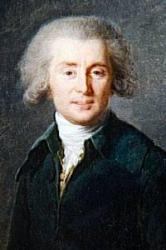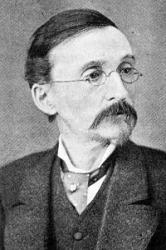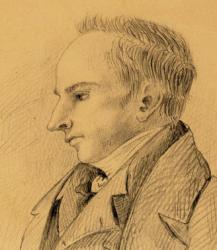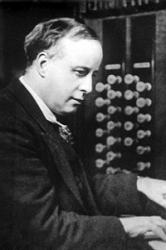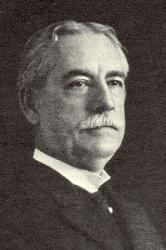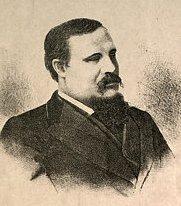1688 - 1758 Person Name: J. A. Rothe, 1688-1758 Topics: Grace Justifying; Hell Salvation from; Justification by Faith; Grace Justifying; Hell Salvation from; Justification by Faith; Anchor of the Soul; Christ Blood of; Blood of Christ; Assurance Of Acceptance; The Christian Life The Inner Life; God Mercy of; Faith Justification by; Forgiveness Through Blood; Jesus (See also Christ) Redeemer; Hell Hosts of ; Mercy; Steadfastness; Anchor of Author of "Now have I found the ground wherein" in Methodist Hymn and Tune Book Rothe, Johann Andreas, son of Aegidius Rother, pastor at Lissa, near Görlitz, in Silesia, was born at Lissa, May 12, 1688. He entered the University of Leipzig in 1708, as a student of Theology, graduated M.A., and was then, in 1712, licensed at Gorlitz as a general preacher. In 1718 he became tutor in the family of Herr von Schweinitz at Leube, a few miles south of Gorlitz, and while there frequently preached in neighbouring churches. During 1722 Count N. L. von Zinzendorf, happening to hear him preach at Gross-Hennersdorf, was greatly pleased with him, and when the pastorate at Berthelsdorf became vacant shortly thereafter, gave him the presentation. He entered on his duties at Berthelsdorf Aug. 30, 1722. There he took a great interest in the Moravian community at Herrnhut, which formed part of his parish. But when, in 1737, he had to report to the higher ecclesiastical authorities regarding the doctrinal views of the Moravians, Zinzendorf showed his resentment in various ways, so that Kothe was glad to accept a call to Hermsdorf, near Gorlitz. Finally, in 1739, Count von Promnitz appointed him assistant pastor at Thommendorf, near Bunzlau, where he became chief pastor in 1742, and died there July 6, 1758. (Koch, v. 240; Wetzel’s Analecta Hymnica, ii. 756, &c.)
Rothe was a man of considerable gifts and of unbending integrity, a good theologian, and an earnest, fearless, and impressive preacher. His hymns, about 40 in number, though they can hardly be said to rank high as poetry, are yet often characterised by glow and tenderness of feeling, and by depth of Christian experience. They are somewhat akin to Zinzendorf s better productions, but this resemblance may arise from the alterations which Zinzendorf seems to have made in them. The be6t known of them first appeared in Zinzendorf's hymn-books, and were for a time looked upon with suspicion, because as Zinzendorf did not affix authors' names, the new hymns were at first all ascribed to himself.
Those of Rothe's hymns which have passed into English are:—
i. Ich habe nun den Grand gefunde. Joy in Believing. …At first the Lutherans suspected it, thinking that it was by Zinzendorf, but on discovering that it was by Rothe, soon adopted it. It is a powerful and beautiful hymn, is found in many recent German collections (e.g. the Berlin Geistliche Lieder, ed. 1863, No. 78), and in its English forms has found a very wide acceptance, and proved a comfort and blessing to many. It was doubtless suggested by Heb. vi. 19.
Rothe's hymn under consideration ("Ich habe nun ") has been translated as:—
1. Now I have found the ground wherein. A fine but somewhat free translation of st. i., ii., iv., v., vi., x., by J. Wesley.
It has also appeared in full, or abridged, under the following first lines:—
(1) Now I have found the blessed ground (st. i ). Lady Huntingdon's Selections, 1780.
(2) Now have I found the ground wherein (st. i.). W. F. Stevenson's Hymns for Church & Home, 1873.
(3) 0 Lord I Thy everlasting grace (st. ii.). Horder's Congregational Hymns, 1884.
(4) Father, Thine everlasting grace (st. ii.). J. Bickersteth's Psalms & Hymns1832.
(5) 0 Love, thou bottomless abyss (st. iii.). Evangelical Union Hymnal, 1878.
(6) Jesus, I know hath died for me (st. iv.). Pennsylvanian Lutheran Church Book, 1868.
(7) Though waves and storms go o'er my head (st. v.). Andover Sabbath Hymn Book, 1858.
2. I now have found, for hope of heaven. In full, by Dr. H. Mills, in theEvang. Review, Gettys¬burg, Jan. 1850, and in his Horae Germanica, 1850, p. 68.
3. My soul hath now the ground attained. A good tr. of st. i., iii., v., x., by A. T. Russell, as No. 167 in his Psalms & Hymns, 1851.
4. My soul hath found the steadfast ground. A good tr, (omitting st. v.-ix., and with a st. iv. not by Rothe), by Mrs. Bevan, in her Songs of Eternal Life, 1858, p. 55.
5. Now I have found the firm foundation. By G. F. Krotel, as No. 251 in the OhioLutheran Hymnal, 1880, omitting st. vi.-viii.
6. Now I have found the ground to hold. By J. Sheppard, in his Foreign Sacred Lyre, 1857, p. 91.
ii. Vor wahrer Herzensanderung. The Forgiveness of Sin. first pub. as No. 448 in the 3rd ed., 1731, of Zinzendorf's Sammlung as above, and in 7 stanzas of 4 lines. In the Brüder Gesang-Buch , 1778, it is No. 392. The translations are:—
(1) "Thanks be to Thee, Thou slaughtered Lamb!" (st. vii.). This is No. 345 in pt. ii., 1746, of the Moravian Hymn Book, (2) "Before conversion of the heart." A tr. of st. i., iv., by B. Latrobe, as No. 255 in the Moravian Hymn Book,1789, with the above tr. of st. vii. added. In the 1801 and later eds. (1886, No. 426) the tr. of st. vii. was alone retained.
iii. Wenn kleine Himmelserben. Death of a Child. Written on the death of one of his daughters. The trs. are:—
(1) "When children, bless'd by Jesus." This is No. 1196 in the Supplement of 1808 to the Moravian Hymn Book, 1801 (1886, No. 1258). (2) "When summons hence by Death is given." By E. Massie, 1867, p. 105. [Rev. James Mearns, M.A.]
--excerpts from John Julian, Dictionary of Hymnology (1907)
Johann Andreas Rothe


 My Starred Hymns
My Starred Hymns